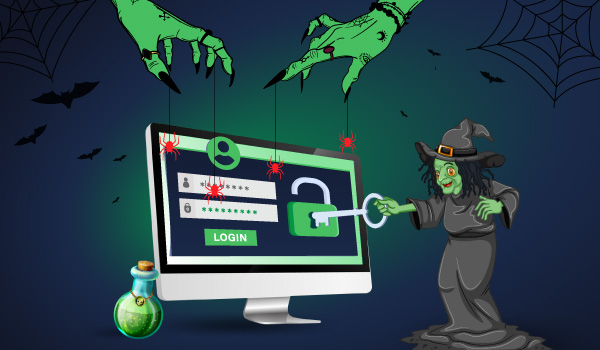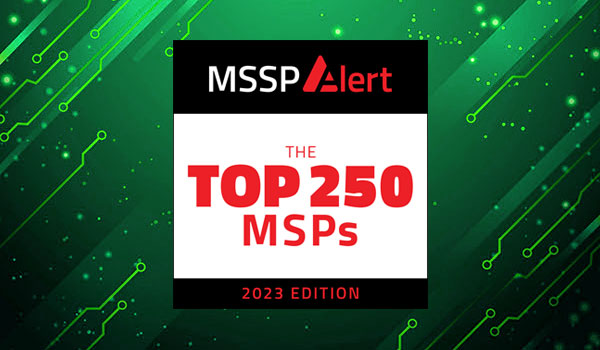5 min read
Contributed by: Lily Teplow, Content Marketing Manager at Continuum
When it comes to selling security, one of the major challenges faced by managed services providers (MSPs) is changing the mind set of small- and medium-sized business (SMB) owners. With massive breaches hogging news headlines today, security is hard to ignore—yet many SMBs choose to do so because they don’t realize how “at risk” they may be.
Oftentimes, MSPs can’t progress in their sales conversations because of this mindset. But as you look to break further into the security space and offer clients with a reliable solution, your journey will start with how you position yourself. In this post, we’ll share important tricks of the trade to help you master the art of selling managed security, starting with these tips.
Redefine Cybersecurity and Risk
Generally, small businesses assume they’re already protected from cyber attacks. With basic protections like anti-virus and firewall, they should be completely covered, right? Wrong.
Cybercriminals and their attacks have grown more sophisticated in recent years, innovating their attempts to evade basic protections and legacy solutions that most SMBs rely on. What’s more, cybercriminals recognize that this is a vulnerability and continuously look to exploit it.
When first approaching sales conversations with SMB clients or prospects, it’s best to re-set the standard of how they might perceive cybersecurity and its associated risks. This doesn’t mean hitting them over the head with scaremongering statistics they’ve probably seen before. It means putting into perspective the threat landscape and the level of risk they’re willing to accept.
Ask them: “what security threats are you most concerned about?” Simply posing this question will get them thinking about what they’re up against and what they need protection from. And, their answer may be that they’ve struggled with ransomware or their employees need better security training—giving you even better ammunition when proposing your solution to address these specific needs.
Then you can ask them, “are you equipped to handle these threats on your own?” If the answer is “no”—which it likely will be—it means that their level of risk is higher than they might’ve thought. However, by partnering with the right managed security services provider, they’ll have access to a more advanced security solution to stay protected against these threats and substantially lower their risk level.
Build Trust
An SMB won’t put their business in the hands of someone they do not trust. Therefore, it’s important to present your services—and your relationship—in a way that establishes and builds trust.
This all starts with transparency. Provide peace of mind by keeping clients updated on major vulnerabilities and help them deploy an effective and secure plan of action. Also, discuss how you’re committed to keeping lines of communication open with your clients and meeting with them on a regular basis. You can even give examples as to how you’ve helped mitigate active threats for clients that are similar to them.
The next step in building trust is accuracy. A trusted MSP will be able to confirm the accuracy of threats and have the tools necessary to remain protected. Conducting routine network assessments, for example, will reassure your clients that the solution you’re providing is working and that they can rely on your partnership to keep them secure.
Lastly, showcase how you’ll be part of their team. Position yourself as a true security advisor, providing both the technical support and the security expertise they need to maintain their ideal level of protection. For many, knowing that they have a team of security experts watching out for them 24/7/365 is enough to get them to listen and seriously consider investing in your services.
Focus on the Business Benefits, Not Tech Specs
In any sales conversation or proposal, you want to stray away from concentrating on the technical features of your solution. This may be difficult for many MSPs because these features are what make the solution work, but that doesn’t necessarily resonate with the person or prospect sitting in front of you.
Instead, highlight the business benefits. How does your solution solve some of the pain points they’re experiencing? How does it align with their key business initiatives? Essentially, what’s the benefit of them doing business with you?
Let’s look at one example, with the business benefit being a more comprehensive security strategy. You could say something along the lines of:
“How do you fight an infection you may not even know you have? Your business needs to be able to address infections that aren’t as blatant as ransomware—ones that are instead getting increasingly stealthy and evasive. Your security strategy needs to adapt, and the best answer is to partner with us.
Our cybersecurity solution can provide you with both the foundational and highly advanced protections you need. Together, we’ll be able to establish a unique protection plan for your specific environment—protecting you from the cyber threats that you’re most concerned about. Additionally, our services are backed by our team of highly-skilled security experts who take care of the analysis, monitoring, and threat intervention needed to stop attacks in their tracks and keep your business safe.”
When selling security services, keep in mind that it’s no longer a question of if businesses need security; it’s a question of what level of security they need. With these selling tips, you’ll be better equipped in your sales conversations to convince prospects and clients that you can provide the level of protection they seek.


